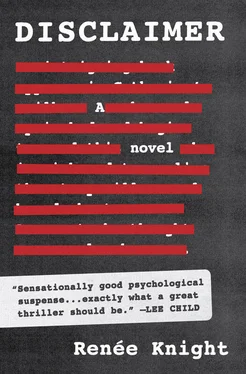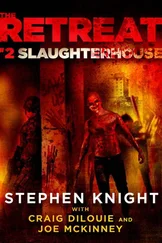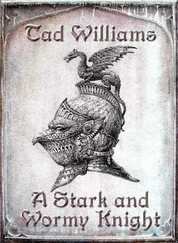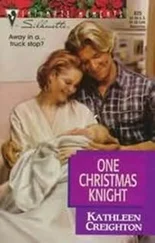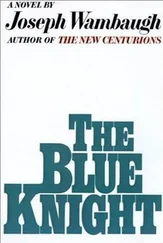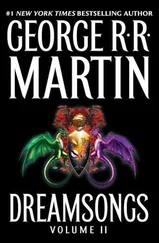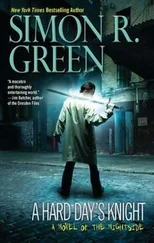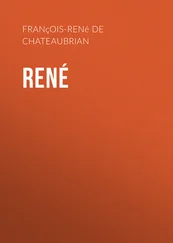“Thank you,” he said. “That was nice.” And she wanted him to die. She would have given anything to watch him die. She did tell his father that. She felt he needed to know that. She couldn’t pretend to be sorry for that. It was real. It’s what she had felt.
He reached into his rucksack, took out a pack of cigarettes, and offered her one. She shook her head. He was about to light it.
“Not in here,” she said. Nick would smell it but she didn’t want to say that. She didn’t want to remind him about Nick. She pointed to the balcony. He opened the shutters, then the doors, and went out.
“Sure?” he said, turning back and offering her the pack again, and she thought she’d better and took one and followed him out, pulling the door behind them. They stood side by side on the balcony looking down at the party people, the happy people, the normal people enjoying a night out. Someone looked up as they walked past. Saw them, standing side by side smoking. Companionably. No idea they were looking up at a rapist and his victim. She remembers finishing the cigarette. He kissed her when he left, one more assault, as if he had no idea what he’d done.
The door gives its familiar stutter as it closes behind her. When she had finished speaking, she had looked at me and said, “I’m sorry.” And then she had got up and walked out. I didn’t reply. I had only interrupted her once to ask a question and she’d answered it. I didn’t get up and see her to the door or thank her for coming. I stayed where I was. I wish I hadn’t burned Nancy’s notebooks — I would do anything to have them back. I need the comfort of her words, but the house is silent. Except it isn’t. I am trembling so much that the chair I’m sitting on is banging against the table and I have to grip the seat to steady it and me. Why did I destroy Nancy’s notebooks and keep the photographs? What a fool.
I feel raw, as if my skin has been licked off by a cat’s rough tongue, removing my protective layer, and I am not sure I can survive without it. I flail around for something to cling to and grab at the nearest thing. She is a liar. She has been lying for years, everyone knows that. She is lying again now. And I listen out for Nancy’s voice to echo mine but I can’t hear it. All I hear are Catherine Ravenscroft’s words describing how Jonathan cut a cross onto his arm and made her lick his blood, and I remember the purple marks I saw when we identified his body. Scarring from an injury sustained in the accident they told us. But so neat and perfectly drawn? I try Nancy again:
“Why didn’t you ask her about the photographs? Why didn’t you confront her when she said she had never met Jonathan?” But Nancy remains silent.
“She has no proof,” I howl.
I cannot stand the silence and put on my jacket and leave the house. The bus stop is at the end of the road and I march to it: left right, left right, eyes front. I can hear the low hum of the bus and turn to see it coming down the road behind me. I quicken my pace, turning round to try and catch the driver’s eye. I put out my hand. I am still twenty yards from the stop. He overtakes me, pulls in and waits. A youth gets off. I am nearly there, but the bus pulls out before I reach it. Didn’t he see me? He must have seen me. How cruel. He didn’t have the decency to wait, just a minute, three at the most. I give the rear of the bus a salute as it disappears round the corner and wait for the next.
Time passes without me noticing. I have emptied my head. When the next bus comes, I get on and sit behind the driver. An elderly woman sits opposite. She tries to catch my eye but I look past her through the window.
“It’s going to be a lovely afternoon. They said it’ll clear up later,” she says. I look at her. I want to reply but I cannot speak, so I nod and then turn away. A woman with two small children gets on at the next stop and the elderly lady pats the seat next to her for one of the children to sit down. The child looks nervous, she doesn’t seem to recognise the old woman, but the mother smiles, picks her up and pops her on the seat, then picks up the other child, a little boy, and carries him. They are about two years old; I think they must be twins. Now the little girl is staring at me too. I stare back. The two women chat about nothing, but it fills the space nicely between me and them.
She is right; by the time I get off the bus the grey has shifted and the sky is blue, the sun bright, but low. It shines directly in my sight line and I have to squint and even then all I see ahead are dark, ill-defined shapes. I turn left through the gate and now the sun is to my right and my vision clears.
This is where Catherine Ravenscroft and Nancy met: the place where Jonathan and Nancy are buried. I used to come regularly to tend their graves but I haven’t been for a while. With Nancy back at home, I haven’t felt the need. We bought our plot when Jonathan died, deciding to settle down with him when it was our turn. For some reason dog walkers seem to think this is an appropriate place for their dogs to stretch their legs and defecate. It usually annoys me but today I sit on a bench and watch them. Jonathan and Nancy are on a rise behind me.
The dog walkers here are good sorts, they always pick up after their animals. I watch a man scoop up his dog’s mess with impressive efficiency. One smooth move, hand in black bag, a swoop down, pick up, and then straight into the bin, the lid already raised by his other free hand. I smile and nod as he walks on. I watch him until he is out of sight. I look the other way. A jogger enters the gates but he takes another path, away from my bench. I get up and open the doggy bin and reach in and take out the little black bag. Holding it between finger and thumb I walk up to my son’s grave. I untie the bag and the reek makes me gag.
“You fucking little shit,” I shout and hurl it at Jonathan’s grave. Some of it flicks out, sticking to his headstone, and I am immediately ashamed. Nancy lies next to Jonathan: devoted mother, beloved wife, forever missed.
I look round to check if anyone has seen me, but they haven’t. I go to the tap and fill a watering can and bring it back, throwing water over Jonathan’s headstone. It takes three trips to clean it all off, and then I pick up the black bag and drop it into the bin. I return to the graves and kneel down between them and weep.
“Did you know, Nancy? Did you suspect?” And my weeping turns to sobs and I am on all fours, prostrate at their feet. I feel a hand on my shoulder.
“Are you okay?”
I look up at the man I had seen earlier with his dog. He reads the headstones.
“Your wife and son?”
I nod, expecting another pat before he walks away, but he stays with me.
“How did your son die?” There is no prurience; it is a gentle question. My mouth is full of spit and tears and I struggle to get the words out. He offers me his hand and helps me up.
“He drowned,” I manage.
“How terrible,” he says. I want more.
“He was trying to save a child.” I hear him catch his breath.
“That’s incredibly brave,” he says and nods as if he understands now who Jonathan was. “And did he? Save the child?”
“Yes he did.”
“What a brave young man he must have been,” and then he gives me the pat and walks away.
Yes he was. Whatever else he may or may not have done, Jonathan was brave to have saved that child, no one can deny that. On that afternoon he had shown courage. He was the first to run in. That’s what the police said. He swam in without a thought for himself. If he hadn’t acted so quickly then, Nicholas Ravenscroft would have been swept out too far for anyone to reach. The young Spaniard may have been the one to drag Nicholas onto the beach, but it was Jonathan who really saved him. I would have been too frightened, most people would have been too frightened, but in that moment Jonathan forgot himself and found the courage to do the right thing. “He was a very brave young man,” is how witnesses had described him to the police and how they had then described him to us. “He sacrificed himself” was their dramatic translation from Spanish into English.
Читать дальше
